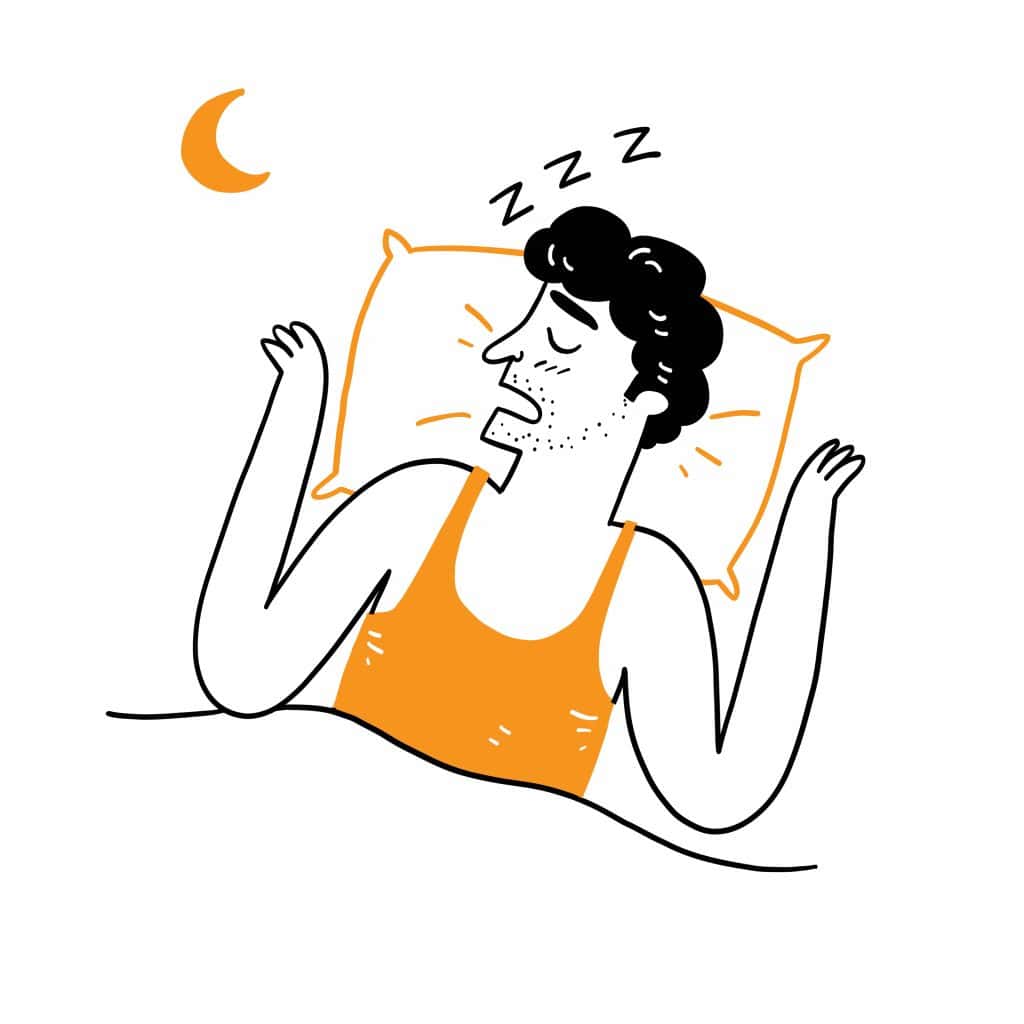Bedding / Sleep Advice
Unraveling the Risks of Excessive Rest
The pull to sleep and stay in bed to rest might seem tempting as our world becomes increasingly fast-paced. While getting enough sleep is key to good health, excessive time spent in bed can lead to a variety of not just physical but also psychological problems and is commonly referred to as “bed rotting.” This article will explore the dangers of spending too much time in bed while detailing medical perspectives on the risks of too much sleep, offering lifestyle changes and expert guidance on finding the right balance between rest and activity.
The Hidden Dangers of Too Much Bed Rest

Prolonged periods spent in bed can trigger several physical issues. Among these are muscle atrophy, where the muscles you’ve worked hard to build begin to waste away, and a decrease in bone density. When the body lacks activity for an extended duration, it struggles to uphold the muscle and bone strength it typically maintains during more active periods, resulting in gradual weakening. Moreover, excessive bed rest can throw off your circadian rhythm, which governs your sleep-wake cycle, leading to disruptions in your sleep patterns and affecting essential bodily functions such as metabolism and mood.
The psychological effects of prolonged bed rest are equally worrisome. Extended periods of inactivity can induce feelings of isolation and consequently, depression. The absence of social engagement and the repetitiveness of a confined, unchanging environment can negatively impact mental health, resulting in a diminished sense of well-being and potentially triggering anxiety. Moreover, underutilization of mental capacities can impair cognitive function, especially when coupled with a lack of objectives and regular physical activity.
Extended periods of lying down can significantly jeopardize heart health. Prolonged immobility heightens the risk of conditions like deep vein thrombosis (DVT) and other circulatory ailments. As the body remains stationary, blood flow decreases, increasing the likelihood of blood clot formation. These clots can become especially dangerous if they dislodge and travel to vital organs such as the lungs or heart, potentially precipitating heart attacks or life-threatening events like pulmonary embolisms. Hence, while adequate rest is vital, extended inactivity poses grave health risks that demand attention.
Medical Insights on Excessive Sleep Risks

Excessive sleep, which is medically termed hypersomnia, can indicate underlying health issues and can itself lead to complications. Recent studies show that adults who regularly sleep more than the recommended seven to nine hours a night can increase their risk of diabetes, heart disease, and stroke. Prolonged sleep has been linked to changes in hormone levels, which affects appetite and glucose metabolism, which can potentially lead to you becoming overweight and insulin resistant.
Neurologically, oversleeping can lead to headaches and impact your brain health. People who sleep excessively report experiencing poorer memory, slower cognitive processing, and a general decline in alertness and executive function. In addition, there is growing evidence that links longer sleep patterns with a higher risk of developing Alzheimer’s disease and dementia later in life.
Health professionals stress that both the quantity and quality of your sleep are important. Disrupted or poor-quality sleep can lead to or exacerbate mental health issues like anxiety and depression. Furthermore, extended sleep can disrupt the body’s natural rhythms, leading to disturbances in long-term sleep architecture and overall health.
Lifestyle Changes to Prevent Bed Rotting

Incorporating regular physical activity into your routine is crucial to combating the risks associated with excessive bed rest. Even seemingly minor daily walks or light stretching can significantly improve cardiovascular health and strength. Developing a schedule of set times to wake up, eat, exercise, and be social can also help maintain a healthy circadian rhythm and reduce the temptation to stay in bed.
Nutrition is key to warding off bed rot. A well-rounded diet packed with essential vitamins, minerals, and protein is vital for keeping muscles strong and energy levels high. Steering clear of too much caffeine and sugar, especially before bed, can enhance both the length and quality of your sleep. Staying hydrated is just as crucial; ensuring you drink plenty of water throughout the day not only supports overall bodily functions but can also contribute to better sleep.
Mental stimulation is key to preventing excessive bed rest. Engaging in hobbies like drawing, reading, puzzle-solving, or learning something new helps keep your mind active and reduces the likelihood of you wanting to spend unnecessary time in bed. Social interaction, whether virtual or in-person, can also provide an emotional boost and motivate you to be more active.
Expert Advice on Balancing Rest and Activity
Health experts support a balanced approach to rest and activity for better health. They recommend following the National Sleep Foundation guidelines, which suggest seven to nine hours of sleep each night for most adults. Sticking to a regular sleep schedule and bedtime routine can signal to your body when it’s time to sleep and when it’s time to wake up, which enhances sleep quality and reduces the risk of bed rotting.
Mindfulness and relaxation exercises like yoga, meditation, and deep breathing can improve sleep quality while encouraging restfulness even without spending extended periods in bed. These practices contribute to physical relaxation and help reduce stress and anxiety, which are common culprits behind disrupted sleep.
Lastly, it’s essential to listen to yourself and your body. Everyone’s needs differ; some may require more or less rest than others. If you find yourself sleeping excessively and still feeling tired, it might be worth consulting a doctor to rule out a sleep disorder or other medical conditions that could be affecting your sleep.
Understanding the risks associated with excessive bed rest and implementing strategies to maintain a healthy balance of rest and activity are important for long-term health and well-being. By ensuring regular physical activity, maintaining a healthy diet, and remaining mentally active, you can effectively combat bed rotting. Remember, while it’s important to rest, too much of it can adversely affect your health. Balancing these aspects can help ensure a life that is both full of enough rest and physical activity.

